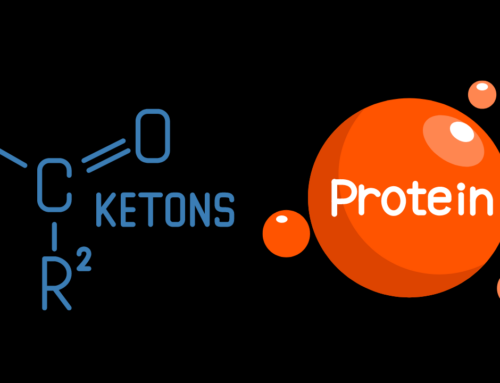*From De Novo Nutrition website
According to the Institute of Medicine, Food and Nutrition Board (1997):
“On average, >60% of US men and women aged ≥ 20 years old consume less than the dietary reference intake (DRI) for magnesium.”
In English, that means that over half of you are probably low in magnesium.
How would you know?
From the University of Maryland Medical Center site:
“Symptoms of magnesium deficiency may include agitation and anxiety, restless leg syndrome (RLS), sleep disorders, irritability, nausea and vomiting, abnormal heart rhythms, low blood pressure, confusion, muscle spasm and weakness, hyperventilation, insomnia, poor nail growth, and even seizures”
Eeeek, that sounds scary.
You don’t want to do the Dr. Google self-diagnosis, which can be anxiety causing. Your search starts by looking up why you have a mole on your butt that sprouted out of nowhere and 10 minutes later you are sure it is now stage 8 cancer that was implanted by an alien from the planet Uranus…..
The whole point is that not getting enough magnesium can lead to some significant issues.
As if that wasn’t enough, magnesium is involved in over 300 different metabolic reactions (Shils ME et al. 1993).
Some examples of these reactions are glycogen breakdown, fat oxidation (burning), protein synthesis (stuffing amino acids into muscles), and numerous other neuromuscular, cardiovascular, immune, and hormonal functions (Ebel H. et al. 1980).
Magnesium is involved (indirectly) with body composition changes as it is a cofactor for different processes affecting nerve and muscle function, bone growth, and is required for energy production.
Let’s not stop there…although I’m sure I have most of you on board, below are 4 more reasons magnesium is awesome:
1) Inflammation Control
You do not want inflammation running amok in your body like the Hulk smashing stuff. It is well established that magnesium deficiency has a direct influence on inflammation (Nowacki W et al. 2000; Guerrero-Romero F. et al. 2002; Rodríguez-Morán M et al. 2008).
2) Better Muscles
Magnesium supplementation also has been shown to improve muscle function.
Researchers Brilla and Haley (1992) put young men on a 7-week strength-training program.
One group got a placebo and the other group got a magnesium supplement to reach a total daily magnesium intake (diet plus supplement) of 8 mg/kg body weight. The only difference between groups was the total magnesium intake (supplement + diet).
Important to note . . . In this study the supplemental form was magnesium oxide which is both cheap and very poorly absorbed; hence, the subjects were given a crap ton of capsules to swallow. Ultimately, the magnesium group still saw a greater strength increase…Pretty cool.
Keep in mind that this effect happens when you replace a deficiency and not by adding metric tons to an adequate intake as was shown by Manore M et al. 1995. However, as we already covered, more than half the population is, in fact, deficient.
3) Better Brain
One more reason to love magnesium is its effect on your brain. Magnesium L-threonate has been used to increase brain levels of magnesium since many other forms do not cross the blood brain barrier.
In a randomized, double-blind, placebo-controlled trial (all the words that make geeks like me as happy as sitting in the exit row on the tiny flying sardine can) conducted by Liu G et al. 2016, it was observed to help brain function by increasing synapse density (which is typically lost with the aging process). In the study, men and women aged 50 to 70 who self reported memory and concentration issues were admitted. They were randomly assigned to either the supplement arm (1.5 to 2 grams of magnesium L-threonate) or placebo over 12 weeks. The researchers found a significant improvement in working (aka short-term) memory and episodic (aka taking two things and joining them together like adding a name to a face) in the supplement group.
4) Better Sleep
Low levels of magnesium have been associated with poor sleep in older adults (Neilsen FH et al. 2010), although hard core fully randomized, placebo-controlled studies for the use of magnesium on frank insomnia are severely limited (Meolie AL et al. 2005). An additional benefit of the right magnesium levels is an increase to the amount and quality of sleep. Better quality sleep could mean a less voracious appetite, reduced cortisol levels, and potentially less fat (Abbasi B, et al. 2012; Nedeltcheva AV et al. 2010).
Are You Low?
Although you won’t know for sure if you are low in magnesium without a specific blood test (red blood cell aka RBC testing is probably the best), I would bet a large amount of money that if you have not eaten any of the items from the high magnesium foods listed below since a Bush was in the white house, you are probably low.
Is Magnesium Safe?
To figure if something is safe, researchers will typically keep increasing the dose of a test substance until it kills off 50% of the population they are studying. Sounds cruel I know. This is referred to as the LD50. Animal research from Mochizuki M et al, 1998 showed that the LD50 of magnesium is quite high. You can count lots of sheep at night and sleep tight knowing that your risk of an overdose is quite low. And if you do opt to mega dose on magnesium citrate, stay close the bathroom and do a lower body warm up for the Wilfred Brimley two step as that is what they use to clean your lower pipes before a colonoscopy. Not that I know…
Remember, if you have adequate magnesium levels, it’s unlikely to be a benefit by cramming more magnesium down your gullet. In a study with Type 2 diabetics who had normal magnesium levels, adding more magnesium did not show any effect on fasting glucose, HbA1c, insulin or lipid profile (Navarrete-Cortes A, et al. 2014).
Buyer Beware
Not all forms of magnesium are equal. From Adriana Sarah Nica et al. 2015:
“The inexpensive oral supplements of magnesium generally contain magnesium oxide, which is poorly absorbed (4%). Magnesium citrate is much better absorbed (50%), but is not so cheap.“
Be sure to check the label and avoid magnesium oxide.
The Solution
Fortunately, the fix is rather easy. Either add a supplemental form of magnesium to your diet, and/or, add more of those high magnesium foods to your plate.
Some magnesium rich foods include:
- Tofu
- Legumes
- Whole grains
- Green leafy vegetables (Swiss chard, spinach, beet greens)
- Wheat bran
- Brazil nuts
- Soybean flour
- Almonds
- Cashews
- Blackstrap molasses
- Pumpkin and squash seeds
- Pine nuts
- Black walnuts
- Black beans
- Quinoa
- Sesame seeds
In summary, since most people are low in magnesium, the low risk of magnesium toxicity, and the magnesium’s affordability, it may be worth adding some to your diet for better muscle function, sleep, recovery, metabolic function and possibly brain function!
References
Adriana Sarah Nica, Adela Caramoci, Mirela Vasilescu, Anca Mirela Ionescu, Denis Paduraru, Virgil Mazilu. Magnesium supplementation in top athletes – effects and recommendations. Medicina Sportiva (2015), vol. XI, no 1, 2482-2494 Journal of the Romanian Sports Medicine Society
Aikawa JW. Magnesium: its biological significance. Boca Raton, FL: CRC Press, 1981:21–38.
Abbasi B, Kimiagar M, Sadeghnijat K, Shirazi MM, Hedayati M, Rashidkhani B. “The effect of magnesium supplementation on primary insomnia in elderly: A double-blind placebo-controlled clinical trial.” J Res Med Sci. 2012 Dec 17 (12): 1161-9.PubMed PMID: 23853635.
Brilla LR, Haley TF. Effect of magnesium supplementation on strength training in humans. J Am Coll Nutr 1992;11:326
Ebel H, Gunther T. Magnesium metabolism: a review. J Clin Chem Biochem 1980;18:257–70.
Institute of Medicine, Food and Nutrition Board. Dietary reference intakes for calcium, phosphorus, magnesium, vitamin D, and fluoride. Washington, DC: National Academy Press, 1997.
Guerrero-Romero F, Rodríguez-Morán M. Relationship between serum magnesium levels and C-reactive protein concentration, in non-diabetic, non-hypertensive obese subjects. Int J Obes Relat Metab Disord. 2002;26:469–74.
Liu G, Weinger JG, Lu ZL, Xue F, Sadeghpour SJ. Efficacy and Safety of MMFS-01, a Synapse Density Enhancer, for Treating Cognitive Impairment in Older Adults: A Randomized, Double-Blind, Placebo-Controlled Trial.
Alzheimers Dis. 2016;49(4):971-90. doi: 10.3233/JAD-150538.
Mochizuki M, Akagi K, Inoue K, Shimamura K.[A single dose toxicity study of magnesium sulfate in rats and dogs]. J Toxicol Sci. 1998 May;23 Suppl 1:31-5
Navarrete-Cortes A, Ble-Castillo JL, Guerrero-Romero F, Cordova-Uscanga R, Juárez-Rojop IE, Aguilar-Mariscal H, Tovilla-Zarate CA, Lopez-Guevara Mdel R. No effect of magnesium supplementation on metabolic control and insulin sensitivity in type 2 diabetic patients with normomagnesemia. Magnes Res. 2014 Apr-Jun;27(2):48-56. doi: 10.1684/mrh.2014.0361.
Nedeltcheva AV, Kilkus JM, Imperial J, Schoeller DA, Peney PD. “Insufficient sleep undermines dietary efforts to reduce adiposity.” ANN Intern Med. 2010 Oct 5:153(7):435-41. PubMed PMID: 20921542.
Nowacki W, Daveau M, Malpuech-Bruge C. Inflammatory response following acute magnesium deficiency in the rat. Biochim Biophys Acta 2000;1501:91–8
Nielsen FH, Johnson LK, Zeng H. Magnesium supplementation improves indicators of low magnesium status and inflammatory stress in adults older than 51 years with poor quality sleep. Magnes Res. 2010 Dec;23(4):158-68. doi: 10.1684/mrh.2010.0220. Epub 2011 Jan 4.
Meolie AL, Rosen C, Kristo D, Kohrman M, Gooneratne N, Aguillard RN, Fayle R, Troell R, Townsend D, Claman D, Hoban T, Mahowald M. Oral nonprescription treatment for insomnia: an evaluation of products with limited evidence; Clinical Practice Review Committee; American Academy of Sleep Medicine.J Clin Sleep Med. 2005 Apr 15;1(2):173-87.
Rodríguez-Morán M, Guerrero-Romero F. Serum magnesium and C-reactive protein levels. Arch Dis Child. 2008;93:676–80
University of Maryland Medical Center “Magnesium” access May 8. 2016 http://umm.edu/ health/medical/altmed/supplement/magnesium
Shils ME. Magnesium. In: Shils ME, Olson JA, Shike M, eds. Modern nutrition in health and disease. 8th ed. Philadelphia: Lea & Febiger, 1993:164–84.




Leave A Comment